Premiership wage cap: Saracens say seven clubs want cap to go
- Published
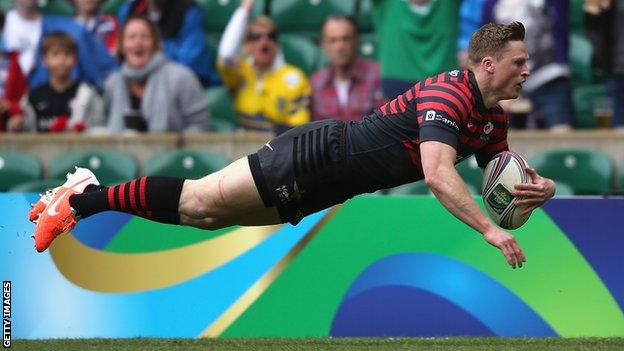
England international Chris Ashton was a standout signing for Saracens from Northampton in 2012
Saracens have called for the Premiership wage cap to be abolished and say that they have the backing of six other top-flight teams.
Premiership clubs are restricted to spending £5m on player salaries, with that rising to £5.5m next season.
The wage cap is designed to encourage teams to produce young players and enhance the pool of English talent.
"The salary cap has served its purpose," said Saracens chief executive Edward Griffiths.
"It's time to seize a golden opportunity to grow the game, to ensure a level playing field in Europe, to build the strongest league in world rugby and to let players earn market-related salaries.
"We must release the handbrake and step on the accelerator."
Mind the wage cap gap |
|---|
"Certain Premiership clubs have been glancing wistfully across the Channel for some time, and with Dan Carter this week becoming rugby union's first million-pound-a-year player, a formal call for the salary cap to be abolished in order to keep pace with the French was perhaps inevitable. |
"The salary cap has ensured the Premiership has been a highly competitive competition, but with the cap rising year on year and the second marquee player allowance being introduced, the gap between the "haves" and "have-nots" has already started to widen. |
"Saracens believe scrapping the cap will grow the game and create a level playing field in Europe, although supporters of, say, regional rugby in Wales may think the opposite." |
BBC Radio 5 live's Chris Jones |
However, Harlequins chief executive David Ellis described Griffiths' quotes as "somewhat surprising" and said the Twickenham Stoop side "fully support the salary cap".
He continued: "The fundamentals of this regulation were approved recently at a shareholder meeting and so I can't understand why the issue is being raised again so quickly.
"As a club, Harlequins fully supports the salary cap - it is one of the elements which makes our league one of the most competitive in the world.
"Most of the great leagues globally have salary caps or systems in place to monitor spending."
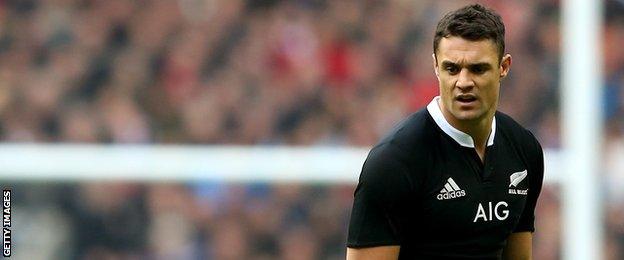
Dan Carter is set to become the best-paid player in the world when he joins Racing Metro next year
The Premiership's 12 clubs, and Championship sides Worcester and Bristol, will discuss the possibility of scrapping the salary limit at a Premier Rugby shareholder meeting on 4 February.
Premiership sides have long strived to compete in Europe against the cash-rich French clubs, who have a wage cap of 10m euros (£7.8m)
New Zealand fly-half Dan Carter is set to become the best paid player in the world by agreeing to join Racing Metro after the 2015 World Cup.
Meanwhile, England and Northampton Saints hooker Dylan Hartley admitted he was close to moving to the Top 14 for an improved wage at Montpellier before signing a new deal at Franklin's Gardens.
2015-16 Premiership salary cap | |
|---|---|
Basic cap is £5.1m, up from £4.76m in the 2014-15 season | Clubs can now nominate a second player to be excluded from the salary cap |
£400k in academy credits, covering players who are under the age of 24, joined the club before their 18th birthday and are earning more than £30k a year | Clubs can apply for one injury replacement when one of their players has been injured for a period of 12 weeks or more |
From next season, the Premiership's basic salary limit will rise from £4.76m to £5.1m, with a further £400,000 available in academy credits, which cover players who are under the age of 24 and joined the club before their 18th birthday and are earning more than £30,000 a year.
Clubs will also be able to sign two 'marquee' players, whose wages will be excluded from the cap, as long as they arrive from outside the Premiership.
Griffiths added: "English clubs must compete in the European Champions Cup against Irish and French clubs spending two or three times as much on players.
"Imagine the likes of Arsenal and Manchester City being asked to compete with Barcelona, FC Bayern and Real Madrid under those circumstances.
"It would never happen, but it happens in rugby. Strong legal opinion suggests the salary cap, as applied, breaches European competition laws."
- Published18 December 2014
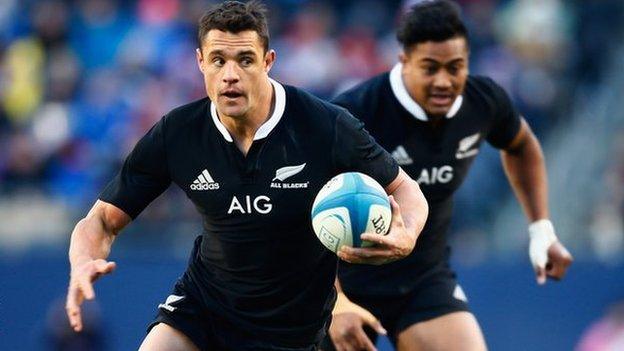
- Published17 December 2014
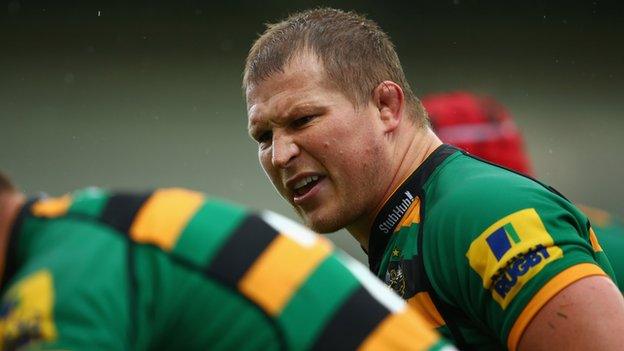
- Published17 September 2014
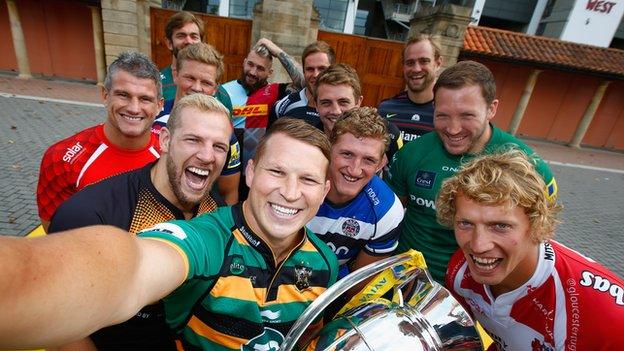
- Published14 September 2016

- Published15 February 2019
